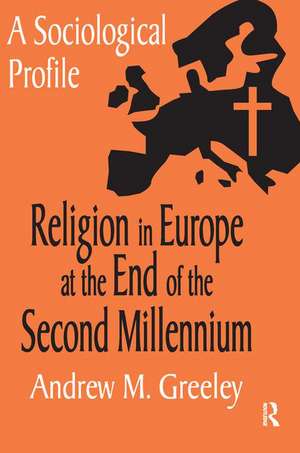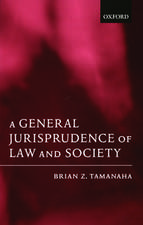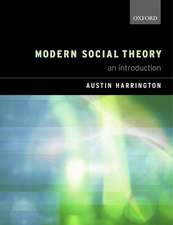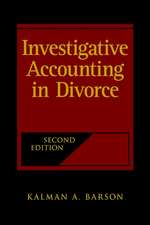Religion in Europe at the End of the Second Millenium: A Sociological Profile
Editat de Andrew M. Greeleyen Limba Engleză Hardback – 2 aug 2017
| Toate formatele și edițiile | Preț | Express |
|---|---|---|
| Paperback (1) | 436.14 lei 6-8 săpt. | |
| Taylor & Francis – 30 apr 2004 | 436.14 lei 6-8 săpt. | |
| Hardback (1) | 1000.27 lei 6-8 săpt. | |
| Taylor & Francis – 2 aug 2017 | 1000.27 lei 6-8 săpt. |
Preț: 1000.27 lei
Preț vechi: 1219.84 lei
-18% Nou
Puncte Express: 1500
Preț estimativ în valută:
191.40€ • 197.46$ • 159.73£
191.40€ • 197.46$ • 159.73£
Carte tipărită la comandă
Livrare economică 27 martie-10 aprilie
Preluare comenzi: 021 569.72.76
Specificații
ISBN-13: 9781138531772
ISBN-10: 1138531774
Pagini: 268
Dimensiuni: 152 x 229 x 16 mm
Greutate: 0.45 kg
Ediția:1
Editura: Taylor & Francis
Colecția Routledge
Locul publicării:Oxford, United Kingdom
ISBN-10: 1138531774
Pagini: 268
Dimensiuni: 152 x 229 x 16 mm
Greutate: 0.45 kg
Ediția:1
Editura: Taylor & Francis
Colecția Routledge
Locul publicării:Oxford, United Kingdom
Cuprins
1: The Persistence of God; 2: A Rebirth of Hope?; 3: Magic, Science, and the Mystical; 4: The Churches; 5: Trust, Tolerance, and Sex; 6: Russia: The Biggest Revival Ever?; 7: Religion in the Former “Evil Empire”; 8: The Religions of Ireland; 9: A “Secularized” Ireland?; 10: Religious Markets in Norway; 11: Orange Exceptionalism; 12: Conclusion
Descriere
Most sociologists of religion describe a general decline in religious faith and practice in Europe over the last two centuries















